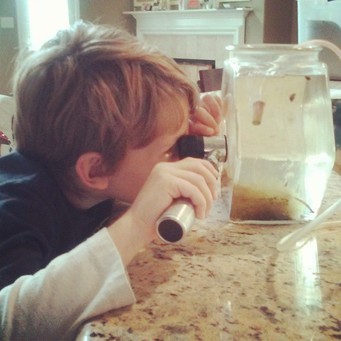
- Expose children to big subjects and skills without watering them down
Suggestions for big subjects and skills: cooking, building with wood or electronics, fixing, foraging, creative writing
- Don't be afraid to say “I don’t know,” and then, research the answer together.
In fact, you might want to take this a step further by pointing them to other avenues to continue their investigation. In the end, showing your child that you don’t know the answer will give them the confidence to keep looking.
Occasionally, you get tired of the questions. That is ok and natural. Do not let this tempt you into telling your child false answers or non-answers (like “because I said so” or “just because”). Instead, the truth is best. Children understand a need to relax and rest. Give them tools to research on their own as early as you can in their life so that they can continue down their road of learning even when you need a rest.
Do not be afraid to let children research independently at a very early age. Show them Google, YouTube, Wikipedia, etc. These websites even have voice search for children who are too young to read. Do keep an eye on what they are being exposed to, and set filters accordingly. But also do give them boundless fuel for their burning curiosity. Go to the library regularly and explore it all. Let them pull down stacks of cookbooks or computer books from the adult section if they wish.
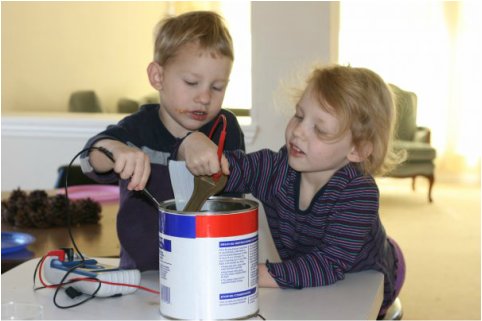
- Form your own opinions about what they are old enough to do
- Experiment…Experiment constantly
- To the extent that it is possible, let them decide what they would like to learn. Also, allow them to quit.
- Don’t be bound by recipes and instruction books
- Worthwhile waiting
Here are some examples of filling up these times with creativity and learning.
In a car ride, read to children or play open ended games. One game we love to play is “What am I thinking about?” We tried 20 questions, but that was one game we ended up changing! Instead, we are allowed to ask as many yes/no questions of the thinker as we want.
On a long walk, take a bag or two with you to pick up all sorts of things. Take lots of pictures to identify plants or structures later. Use a data connection if you have it to research on the spot. Learn some foraging skills to add an extra dimension to nature lore.
When waiting at a doctor’s office or in a line, every magazine rack can become a game similar to “Where’s Waldo?” A notebook in your purse can be a canvas for your child. If they are too young to draw much on their own, let them dictate what you draw (it turns silly quick!), or give them a background to turn their scribbles into embellishment (my favorite was a cupcake sketch, then it gets decorated).
- Listen. Then, when you think you’ve got it – ask “What else?”
We were lucky because we were forced to give him what every child needs.
If you want your child to keep asking questions, make sure you listen to those questions. Make sure you understand. Make sure you explore every facet of what they really mean.
- Never forget, they are people first and children second.
Thank you, Susannah Martin for writing this beautiful recipe for a curious child!
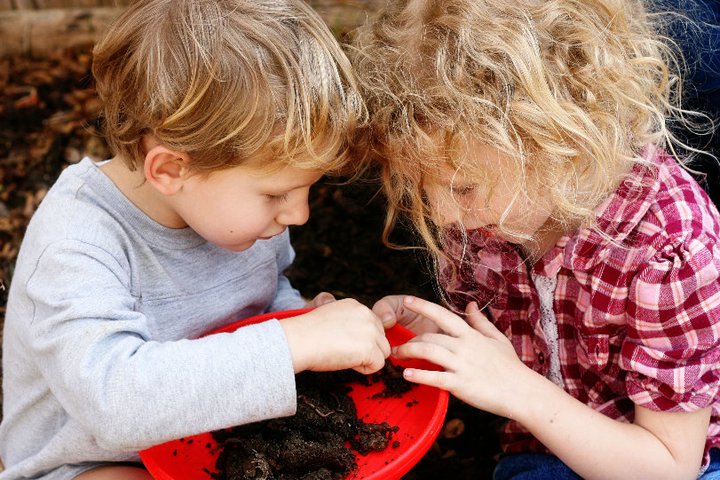
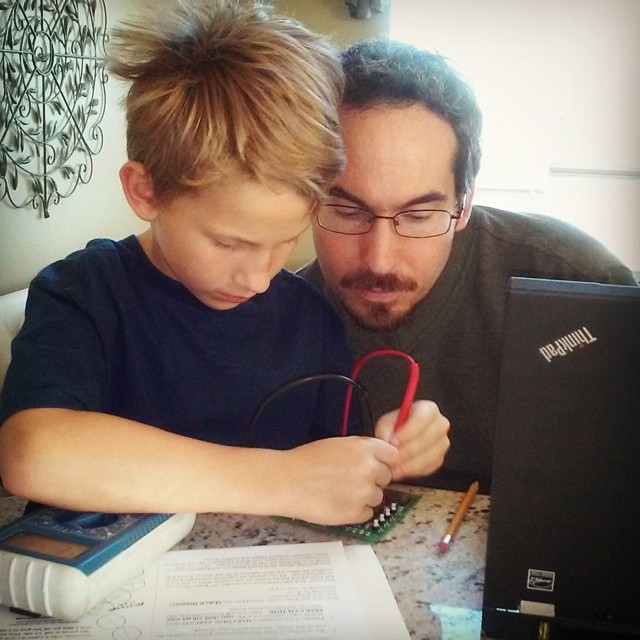

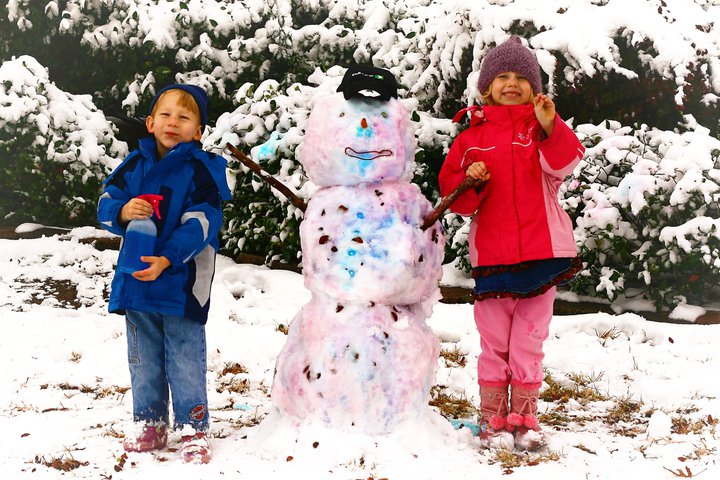
 RSS Feed
RSS Feed